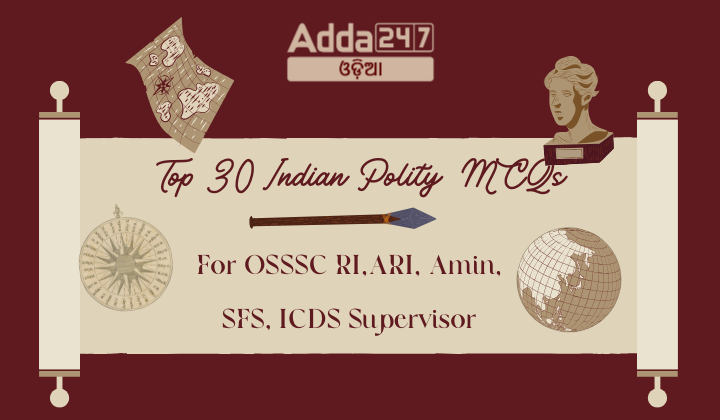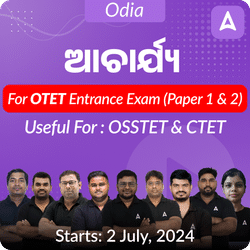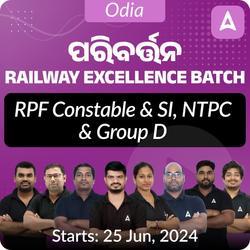Indian Polity is a crucial section for competitive exams like OSSSC RI, ARI, Amin, SFS, and ICDS, where a solid understanding of the Indian Constitution, political institutions, and fundamental principles of governance is tested. Top MCQs often cover essential topics such as the features and significance of the Preamble, the fundamental rights and duties of citizens, and the Directive Principles of State Policy. Questions might delve into the structure and functioning of the Parliament, including the roles of the Lok Sabha and Rajya Sabha, the process of law-making, and the nuances of parliamentary procedures. The examination can also include queries about the President’s and Governor’s powers, the Council of Ministers, and the Prime Minister’s role in the executive branch. The federal structure of India, including the distribution of powers between the Centre and States, the role of the Judiciary, the appointment and functions of the Supreme Court and High Courts, and the process of judicial review, are critical areas frequently explored in these MCQs.
Top 30 Indian Polity MCQs for OSSSC RI,ARI, Amin, SFS, ICDS Supervisor
- Who was the Chairman of the Drafting Committee for the Indian Constitution?
(a) Jawaharlal Nehru
(b) Vallabhbhai Patel
(c) Dr. B.R. Ambedkar
(d) Rajendra Prasad
Ans: (c) Dr. B.R. Ambedkar - Which committee was responsible for drafting the provisions related to the central government in the Indian Constitution?
(a) Drafting Committee
(b) Union Power Committee
(c) Provincial Constitution Committee
(d) States Committee
Ans: (b) Union Power Committee - Who chaired the Provincial Constitution Committee?
(a) Jawaharlal Nehru
(b) Rajendra Prasad
(c) Vallabhbhai Patel
(d) B. Pattabhi Sitaramayya
Ans: (c) Vallabhbhai Patel - Why was Congress leader Rahul Gandhi recently in the news?
(a) He was elected as the Prime Minister of India.
(b) He was appointed as the Leader of Opposition in the Lok Sabha.
(c) He launched a new political party.
(d) He was nominated for the Nobel Peace Prize.
Ans. (b) He was appointed as the Leader of Opposition in the Lok Sabha. - What is the minimum eligibility for a party to have its leader recognized as the Leader of Opposition (LoP) in the Lok Sabha?
(a) The party must have at least 5% of the total seats in the Lok Sabha.
(b) The party must have at least 10% of the total seats in the Lok Sabha.
(c) The party must have at least 15% of the total seats in the Lok Sabha.
(d) The party must have at least 20% of the total seats in the Lok Sabha.
Ans. (b) The party must have at least 10% of the total seats in the Lok Sabha. - What significant event related to the Speaker of the Lok Sabha occurred on June 24, 2024?
(a) The Speaker resigned from the position.
(b) A new Speaker was elected.
(c) Bhartruhari Mahtab was appointed as the ‘Speaker pro tem’.
(d) The Lok Sabha was dissolved.
Ans. (c) Bhartruhari Mahtab was appointed as the ‘Speaker pro tem’. - Under which Article of the Constitution is the Speaker of the Lok Sabha elected?
(a) Article 75
(b) Article 80
(c) Article 93
(d) Article 100
Ans. (c) Article 93 - What is the term of office for the Speaker of the Lok Sabha?
(a) 2 years
(b) 3 years
(c) 4 years
(d) Until the dissolution of the Lok Sabha
Ans. (d) Until the dissolution of the Lok Sabha - What is the primary objective of the Krishi Sakhi Convergence Programme (KSCP)?
(a) To promote urban farming practices.
(b) To empower rural women as Krishi Sakhi for transforming rural India.
(c) To distribute free seeds to farmers.
(d) To provide loans to rural women for starting businesses.
Ans. (b) To empower rural women as Krishi Sakhi for transforming rural India. - Which of the following is a training area under the Krishi Sakhi Convergence Programme (KSCP)?
(a) Urban development
(b) Agro-Ecological Practices
(c) IT and Software Development
(d) Marine Biology
Ans. (b) Agro-Ecological Practices - On what date was the current Union Council of Ministers (COM) sworn in?
(a) January 26, 2024
(b) April 1, 2024
(c) June 9, 2024
(d) December 25, 2024
Ans. (c) June 9, 2024 - What is the constitutional basis for the formation of the Council of Ministers in India?
(a) Article 53 and Article 54
(b) Article 73 and Article 74
(c) Article 74 and Article 75
(d) Article 76 and Article 77
Ans. (c) Article 74 and Article 75 - Which type of minister is NOT part of the Union Council of Ministers (COM)?
(a) Cabinet Ministers
(b) Ministers of State (Independent Charge)
(c) Ministers of State
(d) Regional Ministers
Ans. (d) Regional Ministers - Which committee was responsible for drafting provisions related to fundamental rights, minorities, and tribal areas?
(a) Finance and Staff Committee
(b) Advisory Committee on Fundamental Rights, Minorities and Tribal and Excluded Areas
(c) House Committee
(d) Rules of Procedure Committee
Ans: (b) Advisory Committee on Fundamental Rights, Minorities and Tribal and Excluded Areas - Who was the chairman of the Rules of Procedure Committee?
(a) Dr. B.R. Ambedkar
(b) Rajendra Prasad
(c) Jawaharlal Nehru
(d) Vallabhbhai Patel
Ans: (b) Rajendra Prasad - Which committee was tasked with the day-to-day administration of the Constituent Assembly?
(a) House Committee
(b) Drafting Committee
(c) Hindi Translation Committee
(d) Finance and Staff Committee
Ans: (a) House Committee - Who led the Hindi Translation Committee for the Indian Constitution?
(a) Muhammad Saadullah
(b) Alladi Krishnaswami Ayyar
(c) B. Pattabhi Sitaramayya
(d) Dr. B.R. Ambedkar
Ans: (b) Alladi Krishnaswami Ayyar - Which year did M.N. Roy propose the idea of a Constituent Assembly?
(a) 1934
(b) 1935
(c) 1938
(d) 1940
Ans: (a) 1934 - When did the first meeting of the Constituent Assembly take place?
(a) 9th December 1946
(b) 11th December 1946
(c) 13th December 1946
(d) 26th November 1949
Ans: (a) 9th December 1946 - Who was the first President of the Constituent Assembly?
(a) Dr. Rajendra Prasad
(b) Dr. Sachidanand Sinha
(c) H. C. Mukherjee
(d) G.V. Malvankar
Ans: (b) Dr. Sachidanand Sinha - The Right to Equality in the Indian Constitution is guaranteed under which articles?
(a) Articles 12 – 16
(b) Articles 14 – 18
(c) Articles 15 – 19
(d) Articles 16 – 20
Ans. (b) - Which fundamental right prohibits the employment of children under 14 years in hazardous conditions?
(a) Right to Freedom
(b) Right against Exploitation
(c) Right to Equality
(d) Right to Constitutional Remedies
Ans. (b) - The freedom to practise any profession is part of which fundamental right?
(a) Right to Equality
(b) Right to Freedom
(c) Right against Exploitation
(d) Right to Constitutional Remedies
Ans. (b) - The abolition of untouchability is associated with which fundamental right?
(a) Right to Equality
(b) Right to Freedom
(c) Right against Exploitation
(d) Right to Constitutional Remedies
Ans. (a) - The Right to Freedom of Religion is covered under which articles?
(a) Articles 21 – 24
(b) Articles 25 – 28
(c) Articles 29 – 32
(d) Articles 30 – 33
Ans. (b) - Which fundamental right allows citizens to approach the Supreme Court directly in case of a violation?
(a) Right to Equality
(b) Right to Freedom
(c) Right to Constitutional Remedies
(d) Cultural and Educational Rights
Ans. (c) - Cultural and Educational Rights are intended to protect the interests of which groups?
(a) All citizens
(b) Minority groups
(c) Government employees
(d) Children under 14 years
Ans. (b) - During a national emergency, which fundamental rights cannot be suspended?
(a) Articles 20 and 21
(b) Articles 21 and 22
(c) Articles 22 and 23
(d) Articles 23 and 24
Ans. (a) - The concept of ‘Basic Structure’ of the Constitution was established in which landmark case?
(a) Golaknath case
(b) Kesavananda Bharati case
(c) Sajjan Singh case
(d) Minerva Mills case
Ans. (b) - Fundamental rights can be amended by which entity?
(a) The President of India
(b) The Parliament
(c) The Supreme Court
(d) The Prime Minister Ans. (b)











